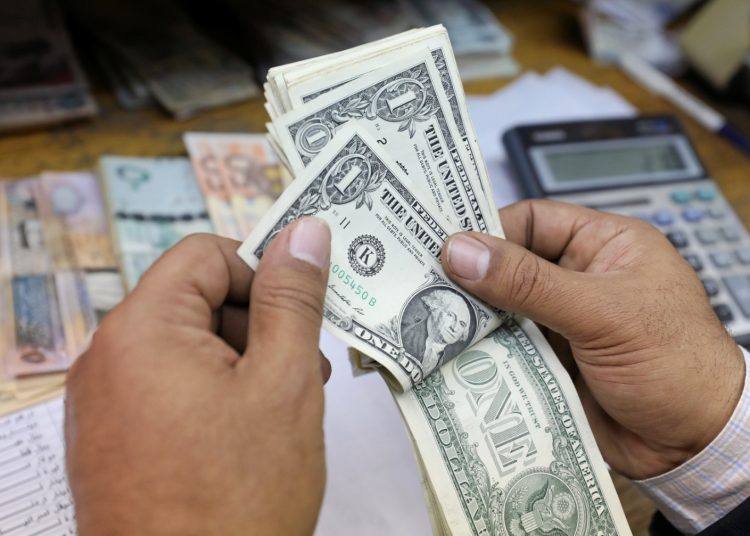The banking sector’s foreign-currency (FC) liquidity should improve significantly following Egypt’s $35 billion deal with the United Arab Emirates, the Egyptian pound’s devaluation of almost 40% and the announcement of an agreement on an enhanced IMF support programme worth $8 billion, Fitch Ratings said.
However, Fitch expects pressure on banks’ capital ratios following the pound devaluation. Overall, these developments should be neutral for Egyptian banks’ ratings, which are constrained by the sovereign’s ‘B-’/Stable rating.
“Egypt will receive substantial inflows of fresh financing over the next few months from UAE’s FDI package and subsequent commitments from the IMF and other multilateral and bilateral partners. This, along with the devaluation, will relieve external liquidity strains,” Fitch said in a report, a copy of which was obtained by The Egyptian Gazette.
Accordingly, Fitch believes the Egyptian banking sector’s net foreign liability (NFL) position of $17.6 billion at end-January 2024 represents a trough and that the position will narrow significantly in 2024.
“Remittances were down 30% in 2023, to $22 billion, but if recent developments increase confidence that further large-scale devaluations are unlikely in the near term, as we expect, remittance inflows could rise, further supporting banks’ FC liquidity,” the report said.
A sustained improvement in investor confidence could arise if the authorities demonstrate continued commitment to structural reform, and a durable move towards a flexible exchange-rate regime.
Fitch said better FC liquidity should support credit growth and overall credit performance, as corporates have been facing higher input costs and tight FC liquidity since 2022.
“We believe asset-quality risks following the devaluation are contained, due to a low share of FC lending, low currency mismatches and regulatory forbearance on SME impaired exposures. We also expect yields on local-currency sovereign securities to trend higher after the Central Bank of Egypt hiked policy interest rates by 600bp on 6 March. This should boost banks’ profitability and internal capital generation in 2024-2025,” it said.
However, banks’ capital ratios remain highly sensitive to pound depreciation. The sector’s common equity Tier 1 ratio declined by 140bp, partly driven by currency depreciation, when the EGP weakened by around 40% against the US dollar in 2022.
“We estimate a 10% move in the exchange rate (to US dollar) results in about a 30bp change in Fitch-rated banks’ average capital ratios. Accordingly, we believe private-sector banks’ capital ratios have declined following the devaluation, but we expect them to maintain reasonable buffers above minimum regulatory requirements,” it added.






Discussion about this post